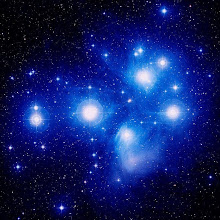Today is the
As you might imagine, my interest at this point was indubitably piqued. So I ambled on over to Wikipedia to see what it would tell me about Ms. Joan Feynman. There was a loud sigh of frustration as I discovered her article was but a stub, just a few sentences long with barely any detail about her life and accomplishments.
After a little digging, I found that Feynman had indeed gone on to become a well-respected astrophysicist specializing in interactions between Earth and the solar wind. Among her biggest contributions to her field were key studies on the nature of coronal mass ejections, auroras, solar storms, and effects of the sun on climate change. Make sure to check out the wonderful clip above, by the way, of Joan explaining how she originally came to marvel at auroras...

Joan and Richard at the beach
I also read a compelling tale of how young Feynman drew strength from an astronomy book she'd received from her big brother. She could barely understand it at first, but with Richard's encouragement, she eventually made her way through. And when Feynman realized that one of the graphs in a later chapter was based on the work of pioneering astronomer Cecilia Payne-Gaposhkin, she gained new resolve in her dream of becoming a scientist herself.
Feynman would go on to face plenty of discrimination on her way toward becoming a senior scientist at the Jet Propulsion Lab in California, from where she retired a decade ago. But she displayed steadfast determination, and in so doing, carved out an important spot in the history of astrophysics.
After learning all of this, I decided a few days ago to beef up Joan Feynman's Wikipedia article. After all, just as she was once inspired by Cecilia Payne, so some other young budding scientist might be inspired by her story... After considerable expansion, the article has now been nominated for inclusion in the "Did You Know?" section on Wikipedia's main front page. So on this special occasion, I suggest you head on over to Feynman's shiny new Wiki and read all about her!
Happy birthday, Joan, and thanks so much for all you've done for science and for humanity.
*UPDATE: Since publishing this piece last night, I've traded a few emails with the lovely Dr. Feynman, who is doing well. She was delighted about the new Wikipedia page, but also informed me that her birth date was a year off! And so, both the Wiki page and this here post are now up to speed. (Fear not, my fellow Wikimedians, I found a citation!)

Wonderful post! I want to learn more about Joan Feynman too! And I LOVE that first video! So sweet!
ReplyDeleteYou can see more of Joan where that clip comes from: the BBC documentary 'No Ordinary Genius' in two parts of 50 mins each on YouTube in Christopher Sykes channel.
ReplyDeleteThanks! Here's the link to that doc, for anyone who wants to watch.
ReplyDeleteI recall an anecdote that Richard Feynman relates in one of his books, that he had mentioned a (then) recent article on parity violation to his sister Joan, complaining that is was filled with exotic mathematics that he couldn't understand. He had been working in the field for some time, and like many others, he had gotten in the habit of glancing through the literature to get the gist. She told him to just read it as if he was back in college. This of course worked.
ReplyDeleteI'm impressed. (I'm also impressed that Dr. Feynman was so responsive/helpful.)
ReplyDeleteThis is awesome. I am a Wikipedian and with some others we decided to expand the entries of some of the fiercest women physicists we knew... and I discovered that the french Wikipedia didn't have an entry on Joan !
ReplyDeleteThank you. Your research won't be lost on everyone, and Joan shall have her own entry on the French Wikipedia.
She truly is an inspiring figure. And since I work in physics engineering, the fact that she, and other women before, paved the way for us to finally be able to work in science, means something to me.
Thank you for this entry.
That's wonderful - Thank you for helping spread the word on French Wikipedia!
Delete